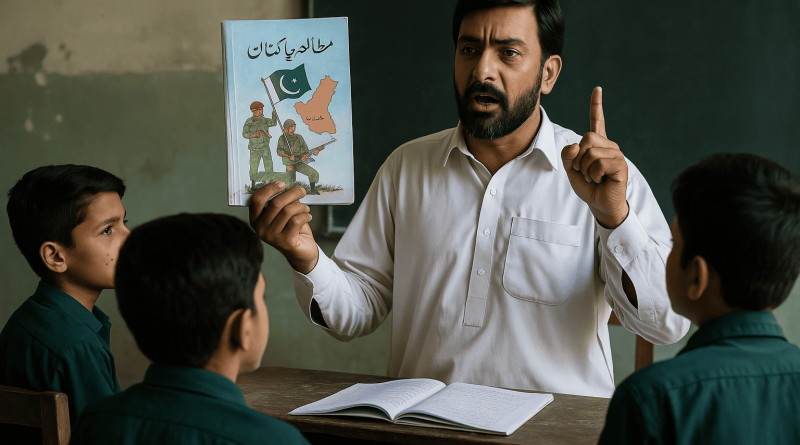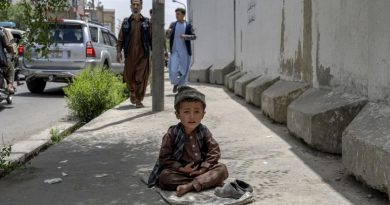Pakistan’s Textbooks Under Fire in Latest UK Research Report
Education is never neutral, but the persistent distortions in Pakistan’s textbooks have long-term consequences.
Education is often regarded as the foundation of a nation’s future. But in Pakistan, state-approved textbooks continue to reveal a troubling pattern: the blending of religion, nationalism, and selective history into a narrative that risks deepening social divides and shaping generations in ways that undermine pluralism and peace.
A new report by IMPACT-se, in partnership with the Ronald S. Roadburg Foundation, provides an in-depth review of 86 textbooks from Punjab, Sindh, and the Federal Directorate, exposing how the country’s curriculum falls short of international standards of tolerance and respect.
Religion as the Core of Identity
At the heart of the curriculum lies the portrayal of Pakistan as an Islamic republic created “exclusively as a free state for Muslims.” This framing, repeated across grades and subjects, sidelines the multi-religious and multi-ethnic reality of the country.
While textbooks claim that minorities live “happily according to their beliefs,” the lived reality of Hindus, Christians, Sikhs, and Ahmadis suggests otherwise. The curriculum’s heavy Islamization extends beyond religious studies into secular subjects such as Urdu, General Knowledge, and even Mathematics, where exercises are framed around Islamic expressions or prayer times.
The emphasis on Islam as the sole foundation of national identity feeds a narrow worldview. It conditions young Pakistanis to equate patriotism with religiosity, leaving little space for pluralism or the idea of citizenship beyond faith.
A Skewed Portrayal of Democracy and Dictatorship
Textbooks often praise democracy as a system but simultaneously undermine it by stressing inefficiency, high costs, and delays. A Civics textbook from Punjab goes so far as to call democracy a “burden on the people.”
In contrast, authoritarian rule, particularly military dictatorships, is described in neutral or even positive terms. Some texts astonishingly highlight Adolf Hitler as an example of a leader who restored “German pride,” while omitting the genocide and horrors of Nazism.
Such selective glorification is not accidental; it reflects Pakistan’s own history of repeated military coups. By downplaying the dangers of authoritarianism and exaggerating its “efficiency,” the curriculum normalizes undemocratic interventions in governance and erodes the value of democratic accountability.
India as the Perpetual Adversary
Few themes dominate Pakistani textbooks more consistently than the portrayal of India. From early grades, students are taught to see India not as a neighbor but as a historic and permanent adversary. The Kashmir conflict is presented solely as Indian aggression, while agreements, cooperation, or shared cultural histories are absent.
Hinduism occasionally receives respectful treatment—described in one Ethics textbook as a religion of “love, tolerance, and peace”—but this is overshadowed by the negative portrayal of Hindus during Partition and the depiction of India as an existential threat to Pakistan’s survival.
The textbooks also describe India’s revocation of Kashmir’s Article 370 as a “black day,” without presenting the legal or political complexities.
This constant framing entrenches a siege mentality, ensuring that reconciliation remains distant and hostility is passed from one generation to the next.
Jews, Israel, and the Erasure of History
The report highlights that Jews are systematically excluded from comparative religion lessons and are instead framed in narratives of betrayal during early Islamic history. Passages accuse Jewish tribes of Medina of “conspiracies,” while some texts repeat medieval tropes about Jews being responsible for the crucifixion of Jesus. There is no mention of the Holocaust, even in references to Hitler’s Germany.
Israel, meanwhile, is depicted solely through the lens of conflict. Textbooks describe Pakistan as supporting Muslims “on every front in their war against Israel,” reinforcing an uncompromising position.
Even the October 7, 2023 Hamas attacks are absent from accounts of the Gaza war, with blame placed entirely on Israel for humanitarian suffering.
This selective erasure and demonization foster intolerance and deny students an opportunity to understand Jewish history or the complexity of the Middle East.
Women Between Progress and Patriarchy
Gender representation remains deeply conflicted. On one hand, textbooks celebrate figures like Fatima Jinnah and Benazir Bhutto, and highlight women in professions such as engineering or aviation.
On the other, traditional gender roles are reinforced, with young girls portrayed as naturally suited for sewing and domestic tasks. Imagery consistently depicts women in hijabs, linking dignity and morality to modest dress codes.
This duality sends mixed messages to young learners: women can succeed, but only within culturally sanctioned boundaries.
Foreign Policy Through a Religious Lens
Pakistan’s foreign policy is consistently framed as an extension of Islamic solidarity. The country’s leadership in founding the Organization of Islamic Cooperation (OIC) is described as part of a divine mission to unite Muslims. Its nuclear capability is celebrated not only as strategic defense but as a symbolic victory for the Islamic world.
The United Nations is portrayed as biased against Muslims, while Pakistan’s ties with China are praised uncritically. By framing diplomacy as a moral struggle between Muslims and “the West,” the textbooks leave little space for nuanced understanding of global politics.
Why This Matters
Education is never neutral, but the persistent distortions in Pakistan’s textbooks have long-term consequences. By glorifying authoritarianism, demonizing neighbors and minorities, and embedding religion into every subject, Pakistan risks raising generations conditioned to mistrust pluralism and embrace hostility.
For an international audience, the findings raise a crucial question: how can a nuclear-armed state grappling with extremism prepare its youth for peace when its schools normalize intolerance?
The report underscores a fundamental truth: curricula are not just about teaching facts—they shape values, worldviews, and future policies. Unless Pakistan reforms its educational system to embrace inclusivity, critical thinking, and historical honesty, its classrooms will remain breeding grounds for division rather than bridges to peace.



